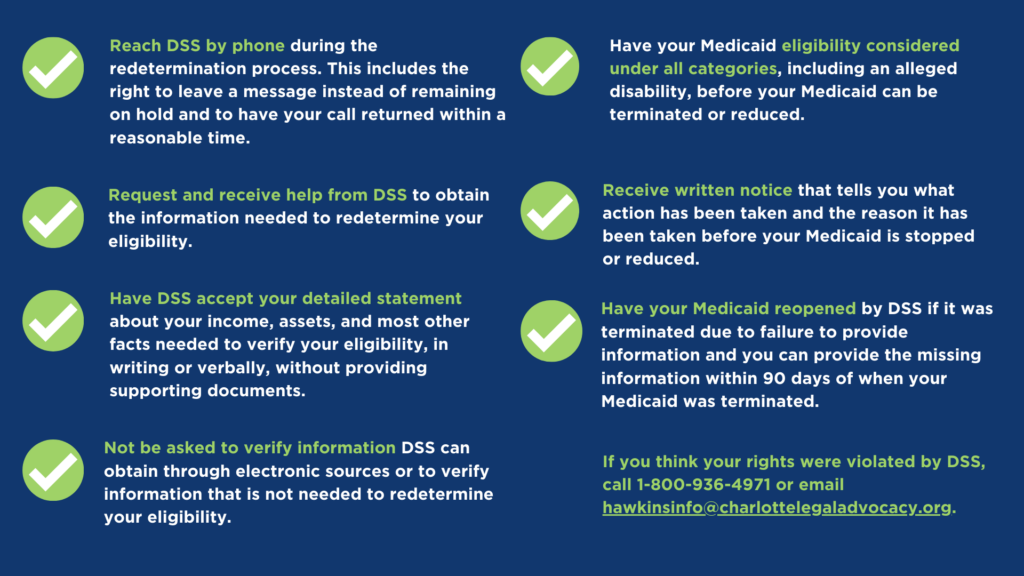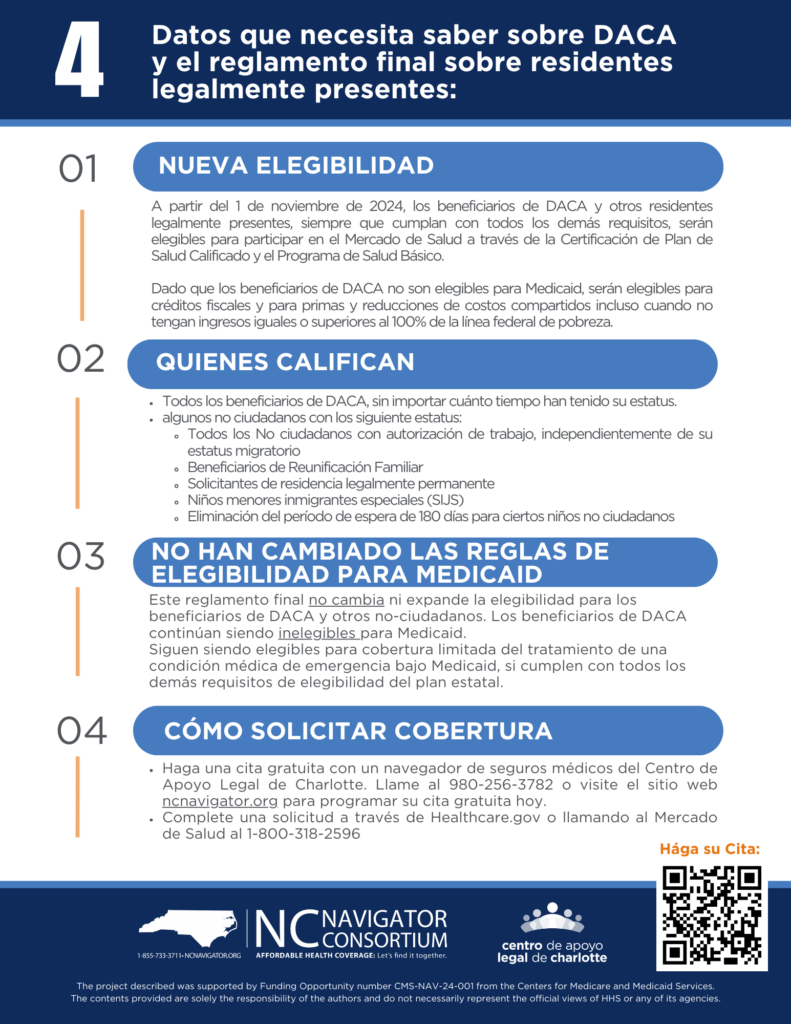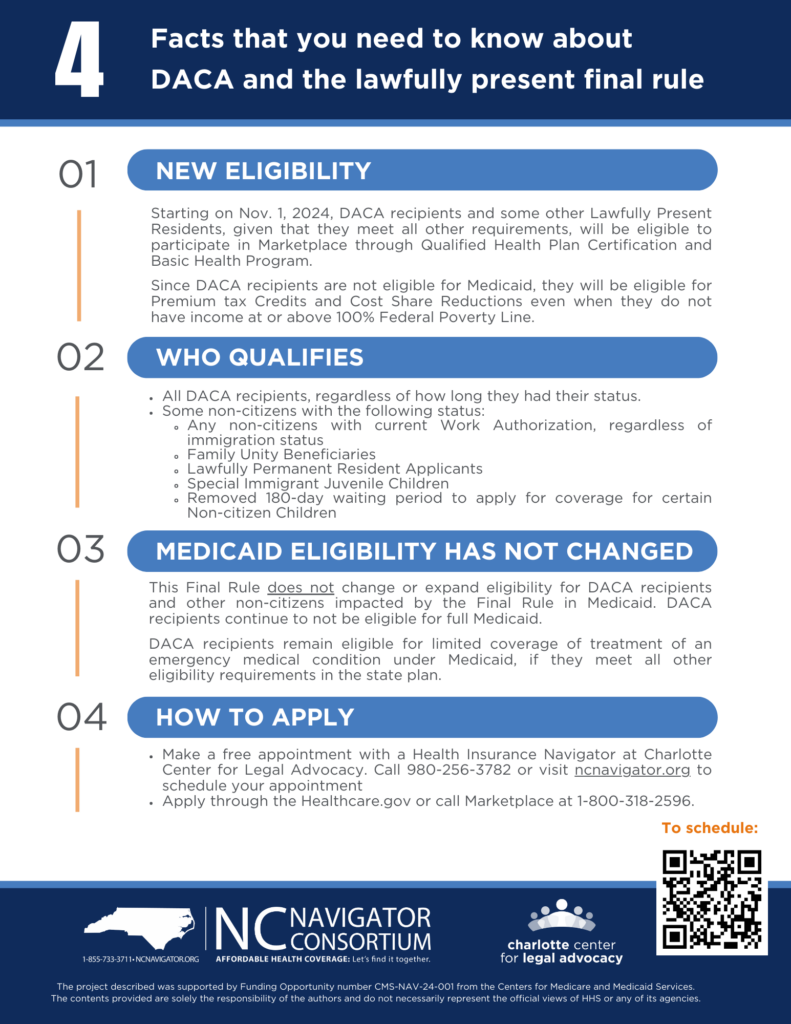At Charlotte Center for Legal Advocacy, we know that access to healthcare changes lives—and so does the dedication of the people who help make that access possible.
As a part of the North Carolina Navigator Consortium, our federally certified Health Insurance Navigators provide free, unbiased assistance to individuals and families who need help navigating health insurance options under the Affordable Care Act (ACA), along with Medicaid and other federal and state programs.
Advocacy Center Navigators Honored with Statewide Award for Impact on Healthcare Enrollment
In March, our Health Insurance Navigators received the Consortium Member Impact Award from the NC Navigator Consortium. This recognition celebrates the Navigators’ exceptional contributions to public health through their work supporting Affordable Care Act (ACA) and Medicaid enrollment efforts across North Carolina.
The award was presented during a special gathering in Raleigh that marked two major milestones: the 15th anniversary of the ACA and the enrollment of more than 640,000 North Carolinians in Medicaid expansion. Navigators from across the state joined community partners and fellow advocates to celebrate these achievements.
Advocacy Center Navigators Recognized at Assister Appreciation Event
In April, two Advocacy Center Health Insurance Navigators received top honors at the North Carolina Annual Assister Appreciation Event in Greensboro.
Tanja Pauler was named Navigator of the Year. This award goes to a Navigator who has shown exceptional dedication and outstanding service throughout the year, continuously going above and beyond to help our communities navigate the healthcare system and access health coverage.
Natalie Marles, Health Insurance Navigator Project Manager, shared:
Since joining the CCLA team in 2022, Tanja has been an incredible addition to our team in the constantly changing world of access to healthcare. Her dedication, expertise, and strong integrity have raised the bar for what it means to advocate for those trying to navigate the often-tricky world of health coverage. Tanja has tackled some of the toughest challenges in our field, especially those involving agent and broker fraud and the complexities of Medicaid eligibility during the expansion. These are not easy topics to navigate; they demand a deep knowledge of policy, attention to detail, and a heartfelt commitment to clients’ well-being. Tanja brings all of this—and so much more—every single day. Her clients see her as not just a Navigator, but as a trusted friend and advocate. Her colleagues think of her as a go-to resource, a collaborative partner, and a caring presence. We all know her work has made a real impact on the lives of many people. Tanja, your professionalism, compassion, and tireless commitment to helping your clients embody the spirit of this award.
Natalie Marles was honored as the Health Access Champion, a recognition reserved for those who go above and beyond in their efforts to ensure North Carolinians can access vital healthcare services and coverage. Natalie’s leadership has been critical in supporting our team and driving impact across the region.
Julieanne Taylor, Interim Director of the Family Support & Health Care Program, said:
Since becoming the Navigator Program Manager at the Advocacy Center, Natalie has worked tirelessly with her team to reach as many North Carolinians as possible to ensure they have access to healthcare. Natalie’s passion for helping others is evident in her fearlessness to fight for immigrant families and those who are underserved in our community. Natalie is a trusted community leader and has cultivated relationships with countless partner organizations across North Carolina to expand her impact in the healthcare arena. Natalie has hosted Health & Human Services Secretary Xavier Becerra, Vice President Kamala Harris, and has been recognized by Former NC Governor Roy Cooper for her Medicaid Expansion efforts. Natalie is beyond deserving of this honor and we are so proud of the incredible work she does everyday. Congratulations, Natalie!!
We are so proud of both Tanja and Natalie and grateful for the dedication they bring to this work. Their commitment makes a difference every single day.
If you or someone you know needs help understanding their health coverage options, our team is here to help.
Call 980-256-3782 or visit www.ncnavigator.org to schedule a free appointment.


